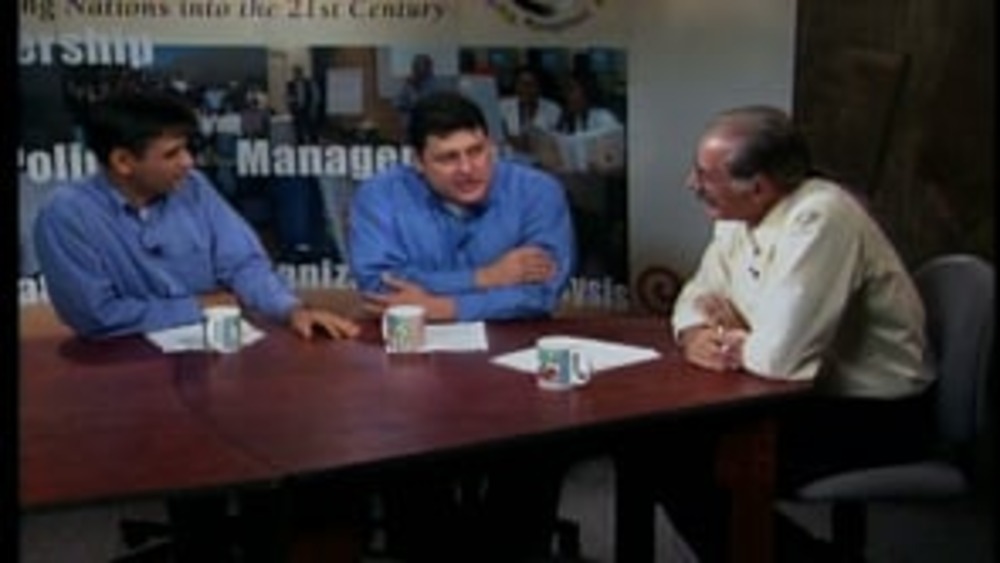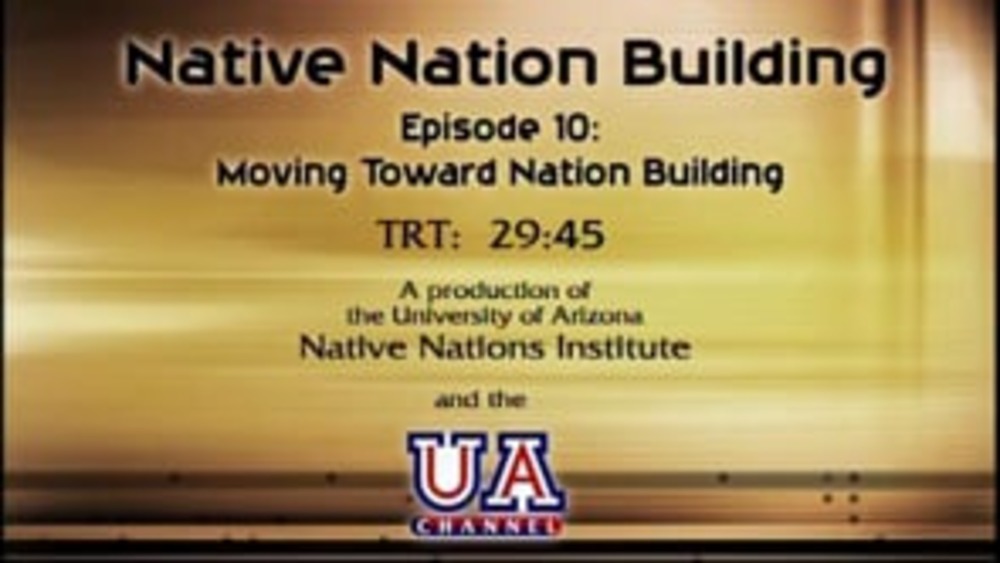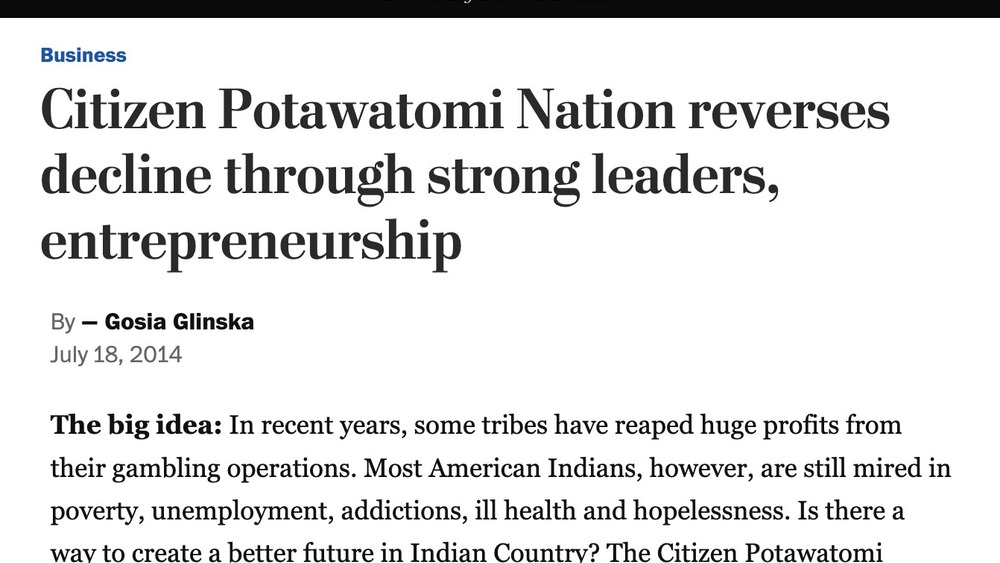Indigenous Governance Database
Citizen Potawatomi Nation

Native Nation Building TV: "Building and Sustaining Tribal Enterprises"
Guests Lance Morgan and Kenneth Grant explore corporate governance among Native nations, in particular the added challenge they face in turning a profit as well as governing effectively. It focuses on how tribes establish a regulatory and oversight environment that allows nation-owned enterprises…

Native Nation Building TV: "Moving Towards Nation Building"
Manley A. Begay, Jr. and Stephen Cornell contrast the two basic approaches to Indigenous governance -- the standard approach and the nation-building approach -- and discusses how a growing number of Native nations are moving towards nation building. It provides specific examples of how implementing…
Honoring Nations: Kristi Coker-Bias: The Citizen Potawatomi Community Development Corporation
Former Executive Director Kristi Coker-Bias provides on overview of the Citizen Potowatomi Community Development Corporation and discusses how it is working to cultivate private sector development in her community, which she says is essential to Native nations' efforts to develop sustainable…

Citizen Potawatomi Nation reverses decline through strong leaders, entrepreneurship
The big idea: In recent years, some tribes have reaped huge profits from their gambling operations. Most American Indians, however, are still mired in poverty, unemployment, addictions, ill health and hopelessness. Is there a way to create a better future in Indian Country? The Citizen Potawatomi…

Key to Indian Development: Self-Government
Beginning late in the last century, the economies of Indian nations in the United States began recording a remarkable turnaround. Since the early 1990s, per capita income on Native American reservations has grown three times faster than have incomes in the nation as a whole. American Indians are…
Joseph P. Kalt: The Nation-Building Renaissance in Indian Country: Keys to Success
Harvard Project on American Indian Economic Development Co-Director Joseph P. Kalt presents on the Native nation-building renaissance taking root across in Indian Country, and shares some stories of success.
Pagination
- First page
- …
- 1
- 2
- …
